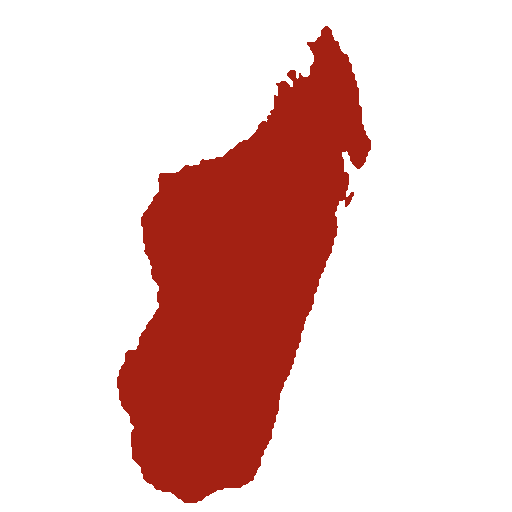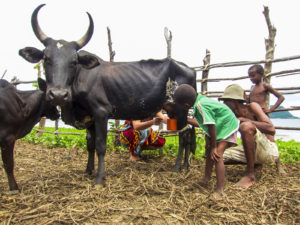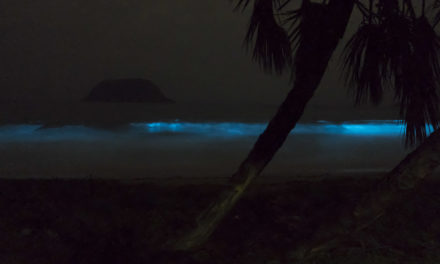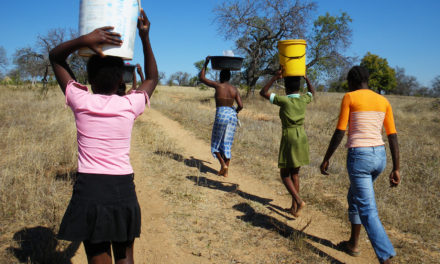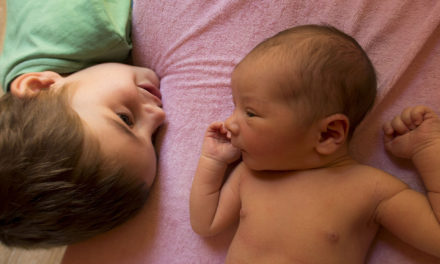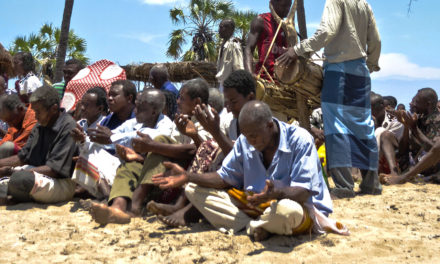
A couple of our team members eventually had to be medevacced to the capital city to try to discover what was the cause of their prolonged and debilitating sicknesses.
D uring our team’s first month on Nosy Mitsio, almost every single one of them, including their children, became sick. We were in constant communication with them over our handheld radios, checking on their health and the progression of their symptoms. There were always several sick at once and just as one started to get better, another one or two would fall ill. We had several with serious infections, others got parasites, but the majority got struck with a terrible stomach virus that was spreading like wildfire over our part of the island. A call over the radio always meant bad news. We as team leaders had to keep a close eye on their symptoms and constantly persuade them to stay hydrated every time they lost fluids through vomiting or diarrhea. It doesn’t take long to become dehydrated here in this climate.
Our fellow villagers and those from neighboring villages were also coming by our house back to back, to ask us for help for themselves or for their children, who were all getting the same sickness. On one such occasion, a lady and her five-year-old grandson came to our house to seek health advice. He’d been vomiting and having diarrhea just like everyone else. I took his temperature and he had a mid-grade fever. We told them how important it was that he keep putting in liquids and explained how to make simple oral rehydration solutions for him to drink. They listened carefully, determined to do exactly as we told them.
That same day, the nurses on our team had a long meeting at our house to make some plan for what to do about our team members’ ailing health. Just as they had left our house, an uncle of the five-year-old boy came to me with deep concern: “Maman’Matimu, he won’t pee anymore! Is there any medicine?” I shrugged my shoulders and told him we didn’t have any medicine for that, but that he really needed to drink more. He walked away defeated with so much worry in his eyes. I knew the situation was bad but I couldn’t carry his burden with him. I had no idea what to do for him and I was already so weighed down and tired from worry about our team. I only had so much energy left. So overwhelmed by the need bombarding me on all sides, I walked back into the house thinking, “I can’t take care of everybody!”
A t sunrise the next morning, as I stepped out of the house, I heard the faint voice of someone calling my name. “Maman’Matimu,” she said, “the little boy from over there, the one who was here yesterday, he died!” I couldn’t believe it! Was I hearing this right? I had just seen him yesterday. This was too much for me to bear!
We heard they tried to give him the rehydration drink, but by then he’d clamped his mouth shut and refused to drink it. All signs seem to show that he died of dehydration and that his inability to pee was already a sure sign of rapidly progressing organ failure. Even a major hospital probably wouldn’t have been able to save him by then, and there’s not even a functioning clinic on our island.
Most of the team went to the funeral that day. When we got there, two other girls from our team and me were led into the hut where the boy’s mom sat with a cloth covering her face. About five other women were sitting around her in silence with big tears streaming down their cheeks. We greeted and sat in silence with them as tears began to fall down my face as well. The sorrow we felt together in that silence was heavy.
In that moment and many since, I’ve thought about Najaty, the mother of the boy who died. He was her only child. With your first glance you can’t help but notice Najaty’s deformed leg which makes her walk with an extreme limp, though she still moves pretty quickly. But what’s even more noticeable about her is the angry look she often has on her face. After having lived on Nosy Mitsio this long, all the other women in Najaty’s village are friendly with me now; they smile, greet me and feel comfortable chatting with me. But I’ve never seen Najaty smile, she’s never greeted me first, and she sometimes hasn’t even responded to my own greetings. I couldn’t help but think of this troubled woman and her son’s death: how was this going to affect her now?
T hankfully the sicknesses that spread quickly across our island have now passed. For our team, this reprieve has meant the chance for them to really delve into life, language, and culture on Nosy Mitsio. The first three months here can really wear on a person as he encounters up close and personal a life that’s completely different from everything he’s known. This is a time when fears and doubts can easily set in and basic everyday tasks can become seemingly impossible. The awkwardness of not being able to speak to or understand anyone around him can make a person want to run away and avoid all contact with these incomprehensible people. And all of a sudden, the idea of ministry in this context can appear daunting and unattainable.
It is in this time that our team members really need someone to come alongside them to encourage them. They need someone to remind them why they’re here, someone to push them forward, giving them goals for learning language and doing life with the people they came here to serve. They need someone to teach them the life of a missionary, what it looks like to join God in his work here in Madagascar. As team leaders, Adam and I spend most of each week doing exactly these things. Our primary attention is now on our team as we support and encourage them through their various struggles, pushing them on in spite of it all, teaching them how to follow God in such a foreign place.
Yet as wonderful as it is to have people sharing in our experiences, I’ve noticed a growing unrest and discontentment in my spirit since the arrival here on Nosy Mitsio of eight more American adults and seven more children. It’s as if I’m the rope in a tug of war between our team and the local people. I’m being constantly pulled between both, I’m beginning to fray, and the day they brought the little boy to our house was when I thought that I might snap. There has been so much tugging from the team that I wasn’t ready for what pulled on me from the other side, when both our team and our fellow villagers needed me at the same time.
The way it felt to me: all the time I was spending giving our team members ideas for language learning and coaching them through it was time I no longer had for learning the language. All the time I spent encouraging them to be out with the local people working in the fields and building relationships was time I didn’t have to do the same. And I’ve often wondered, “Will I have nothing left for the people I’ve come to serve?”
B ut then something happened that began to change my way of thinking. After I had spent some time mentoring a teammate, she went out searching for her language helper so she could have a language lesson. Everybody was out working in their fields and the only person she found was Najaty, the woman who had recently lost her son. “Well, I’ll take this as an opportunity and see how it goes,” she thought. So she plopped down next to Najaty and started asking for new words. Najaty’s face lit up – the same woman who never smiled or spoke greetings! She was so excited and happy to teach new words to our teammate. Then they pulled out the tool for grating coconuts. Our teammate offered to help, and even though she took twice as long as the locals normally do, Najaty was so happy that she told everyone who walked by how their white lady had been grinding coconuts.

Some ladies on our team talking and spending time with ladies from our island while on our boat to mainland Madagascar.
Our teammate had a great afternoon that day, having spent several hours with Najaty and others in their village. The woman who was once so hard and unwelcoming, who was being hardened further by her recent tragedy, was now opening up and becoming a friend. If not for our teammate’s willing presence in her village, this would’ve never happened.
This story filled me with joy and it’s just one example of the beautiful things that are happening with and through our team. I felt a renewed sense of purpose for our role in seeing these new beginnings happen. As much as I’ve felt like I already knew this, God has been showing me in a new way how his continuing work on earth plays out: not in each individual person acting alone but as we all come together in community to form his body.
Paul writes in Romans 12:4-5:
You see, Christ’s continuing presence in the world is his body, the Church. With Adam and me here alone on Nosy Mitsio, we can’t represent that; there’s not enough of us to show what he looks like. And the Antakarana people have never seen Christ, there’s never been a church in their midst. But now with our team here, they can begin to see its form: some feet, some arms, and his heart for them. Adam and I can’t be Christ’s hands and feet in all the other villages on Nosy Mitsio. But by supporting and guiding our team members who live in these villages, all of these many people here can catch a glimpse of a member of Christ’s body. As the villagers walk around, back and forth from one village to the other, they compare notes, asking, “what’s your white person like?” Not by one example, but by many, slowly but surely, the form of Christ begins to take shape before their eyes. Together we’re his body and Jesus is now beginning to live among the Antakarana. Before long, we believe some of them will choose to join him.
In Christ,
Lora, Adam, and Matimu Willard
